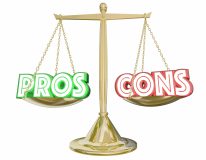 In the next few years you’re going to see press release after press release announcing new mortgage technology from big banks.
In the next few years you’re going to see press release after press release announcing new mortgage technology from big banks.
And that’s a good thing.
Big banks are finally innovating mortgage processes that have been materially unchanged for years. And it’s being inspired by countries that are well ahead of Canada in online mortgage innovation.
Take the UK, for example, which has seen double-digit growth in online mortgages over the last three years, according to National Bank of Canada (NBC).
NBC spokesperson Jean-Francois Cadieux tells us, “Research conducted by Javelin in 2018 affirms that digital applications are still on the rise in the U.S. and have plenty of room to grow, with 30% of consumers who applied for a new mortgage having enjoyed an entirely digital application experience in 2017, up from 24% the previous year.”
“Within the five coming years, we estimate that 5 to 10% of mortgage transactions will be completed online,” says Cadieux, “and 20 to 25% of clients will initiate a mortgage approval online.”
And certainly those numbers will mushroom over time.
National Bank’s Online Shift
National Bank knows where the market is headed and it wants its piece of the web-mortgage pie.
NBC is a unique case because not only does it want to serve online borrowers, but it needs to make up for lost volume from its shuttered mortgage broker division.
So this is the bank’s first big foray into online mortgage origination, and that foray is about making pre-approvals easier—much easier.
In September it launched a whole new web-based pre-approval process. Here’s how it works:
- You apply online using any Internet-enabled device (the process can be 100% remote, if you want it to be)
- You upload some required documents (e.g., proof of income)
- NBC underwrites the mortgage
- If approved, you get a pre-approval certificate by email within 24-48 hours.
You can then give it to your builder or realtor.
The Pros and Cons (Mostly Pros)
Here’s what we like:
- National Bank will fully underwrite your pre-approval and check all your documentation, if you ask them to
- That way you can be more confident that you’ll get the financing.
- This also eliminates most surprises on how much down payment you’ll need.
- “A pre-approval involves obtaining proof of income, verifying liabilities and checking the client’s credit report,” NBC says.
- By comparison, some lenders’ “pre-approvals” are merely glorified “rate holds.”
- The bank says its market research conclusively shows that “a pre-approval certificate adds more value for…clients than a mortgage pre-qualification.”
- If desired, everything can be done online, saving a trip to the branch and face-to-face meeting.
- Previously, “clients were able to begin their pre-authorization online. However, they were required to meet with a mortgage specialist to complete the process,” NBC says. That’s still the case with an overwhelming majority of lenders these days.
- If you get stuck during the application process, you can shift over to a live mortgage specialist.
- Your application can be saved so you can come back later.
- Borrowers get online progress updates.
- Identity validation is done online.
- Documents can be uploaded securely and confidentially using the bank’s website (which is less security risk than email and more convenient than faxing).
Some things could be better, but it’s still early days:
- The pre-approval rate hold is only 90 days (BMO leads the way with 130 days).
- There’s still a need to share documents. “No solution is currently available in Canada that allows us to check income information in real time,” the bank tells us. “Once such a solution becomes available, the bank will be able to use it on behalf of its clients.”
- The down payment is not validated until the “time of purchase” the bank says, which leaves some risk if your down payment proof doesn’t meet bank policies.
- With a normal mortgage, down payments must typically be made from your own savings or a gift from immediate family.
- Many applicants believe they can borrow part of their down payment or pull funds from a questionable source (like oversees) with no ill effect. They either don’t think it’s a big deal, or they don’t think the lender will find out. Either way, without down payment validation at the time of pre-approval, it leaves room for unpleasant surprises.
 Who Cares About Pre-Approvals?
Who Cares About Pre-Approvals?
When you’re buying an existing home, a pre-approval makes you more appealing to the home seller, especially when there are multiple offers.
In many cases, however, multiple offers compel people to make a bid with no financing conditions. Some realtors won’t even submit a buyer’s offer in a bidding war if the borrower isn’t pre-approved. In such cases, a pre-approval’s benefit is somewhat limited.
When you’re buying new construction, it’s common for builders to ask for a pre-approval. The terms of their builder financing often require it. And in many cases, builders want a pre-approval from a major bank (a needless consumer-unfriendly request, but fodder for a future story).
What’s Next?
National’s research suggests about 50% of clients are spending more than 90 minutes online researching mortgages. That’s reinforcing its desire to play in the online sandbox.
If we were betting folk, we’d wager that this realization will push NBC—and all the big banks—closer to a Rocket Mortgage (the global standard for a fast, fully online mortgage) within 36 months.
From a regulatory standpoint, it’s certainly possible. “Regulators don’t specifically require human underwriters to review income documents,” Cadieux says. And if you’re a fraud skeptic, don’t get excited. Optical character recognition and artificial intelligence could ultimately be more reliable than human document reviews.
NBC said it’s also testing online dynamic pricing, based on the type of client. “With the information entered in the application, we adjust our offer considering various factors, including the type of loan requested and the current relationship with the bank.”
From a consumer perspective, this means that the better qualified you are and/or the more business you do with the bank, the better rate you might ultimately expect. (Side note: We’re not sure about NBC but we’re aware of other banks that also have the ability to estimate how prone you are to negotiating, which they also use as a rate-setting determinant.)
Lenders are constantly on the lookout for better ways to segment customers and maximize revenue per borrower. This sort of “smart” online pricing will eventually become commonplace industry-wide as web competition drives down margins.
At the moment, Cadieux says “a client gets an equivalent rate regardless of their chosen channel.” NBC aside, we don’t expect that to be the case at most banks going forward. For if Quicken Loans’ Rocket Mortgage is a guide, doing everything yourself online will ultimately get you a lower rate.

 log in
log in
2 Comments
Online mortgage qualification doesn’t make much sense for a lender advertising a “special” 5-year fixed rate of 3.94%. Why bother with qualifying for an noncompetitive rate? If they were matching HSBC’s rates, I could see a lot more people going for it.
NBC’s advertised rates could be a lot better and maybe someday they will be. But all new tech takes time to develop. For now, each applicant is assigned a mortgage specialist (“MDM”) who they negotiate the actual rate with. NBC also says special pre-approval promo rates will be available. And its new “dynamic” online pricing is coming in late 2019 / 2020. It’ll be based on things like the channel of customer acquisition, relationship with the bank, mortgage type, etc.). Presumably, well qualified online-savvy clients will get better than average pricing.